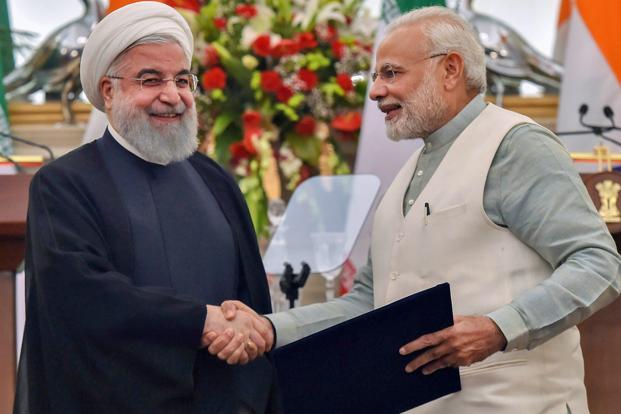After winning the 2019 general election with a thumping majority, the Modi government has decided to restart the import of Iranian oil. The government stopped import of oil from Iran in the first week of May due to American sanctions. “The government is not keen on this (ban). It is keen to resume imports, though the quantum will be limited,” said a government official. Iran’s Pasargad Bank which is about to open a branch in Mumbai will be used for payments purpose as US has banned the use of its financial system for transactions. “Payments can be deposited in the Iranian bank and then Iranian authorities can decide how to utilise the money,” said the official.
The payments will be probably made in Rupee. “These talks have been held earlier too but got stalled due to elections. They will be revived and this will be one of the first focus areas of the government,” added the government official.
Public sector refineries, Indian Oil Corp (IOC) and Mangalore Refinery and Petrochemicals Ltd (MRPL) have contracted to import 1.25 million tonnes crude oil from Iran in November.
India’s relation with the United States has improved in the last two decades. There is a bipartisan consensus in America that they should engage more closely with India on economic, defense and foreign policy matters. Modi government has engaged United States in a very positive matter. But its foreign policy is guided by ‘National Interest’ rather than engaging with a particular block. The ‘Chanakyan School of foreign policy’ is prominent in the Modi government. According to this school, a country should adhere to ‘Realism’ on foreign policy matters and ‘National Interest’ should be supreme while dealing with any other country. This is in stark difference with ‘Nehruvian foreign policy’ which used to see foreign policy as a tool of ‘international good’ rather than ‘National Interest’.
Modi government does not only defy US sanctions on Iran but also did not follow its diktat to not purchase S-400 missiles from Russia. America has imposed sanctions on Russia due to its intervention in Crimea. US sanctions on Russia led to Indian payments worth over $100 million to Russia being blocked in less than a month, with payments of over $2 billion facing uncertainty. It impacted ongoing submarine repairs besides the purchases of missiles and ammunition. The signing of a $5-billion deal to purchase the S-400 air defense system from Russia was also under doubt. When there was no chance of cooperation India had found a way to pay to Russia. It was planned by the Indian government that now India will go on with a rupee-ruble transfer as this is the only way out for both sides. However, US later decide to mend ways with India for mutual benefit and India, along with Indonesia and Vietnam, got a waiver from US sanctions against Russia.
India is one of the largest oil importing nations in Asia, and happens to be one of the six nations that continued purchasing crude oil from Iran despite heavy US sanctions before 2016. Almost 80% of India’s oil demands are fulfilled through oil imports, the majority of which comes from Venezuela and Iran, two nations under heavy sanctions from the United States. Donald Trump decided to revive sanctions that were lifted after the 2015 Nuclear Deal between the United States and the Iran. Oil prices are already touching record high in international as well as domestic markets. If India stops imports from Iran, the prices will move further north. Rise in crude oil prices impacts Indian economy negatively, therefore, cutting down imports from Iran is not in national interest.
On Iranian oil import and Russian military equipment purchase, India’s national interest was at stake and therefore government defied the US diktat. However, this does not mean that Modi government does not want good relations with the United States. In fact, both countries are closest ever in history and are cooperating on military, foreign policy and economy front. The dealing with America and Russia tells than Modi government’s foreign policy is driven solely on national interest.
